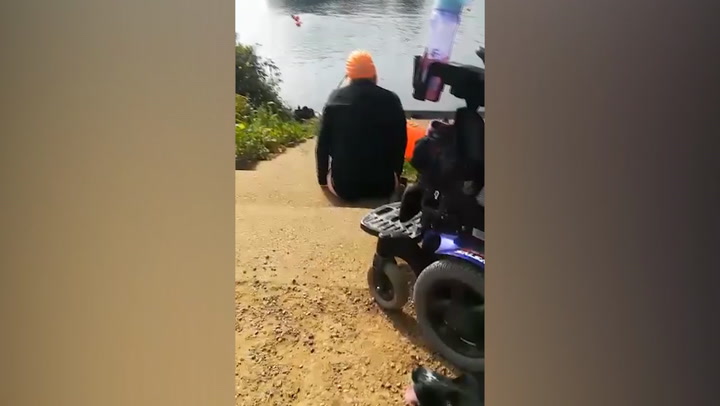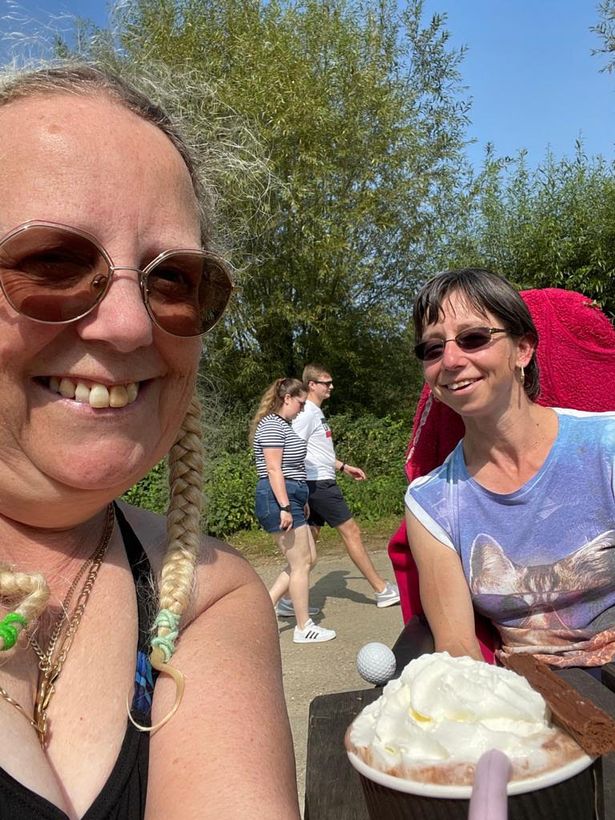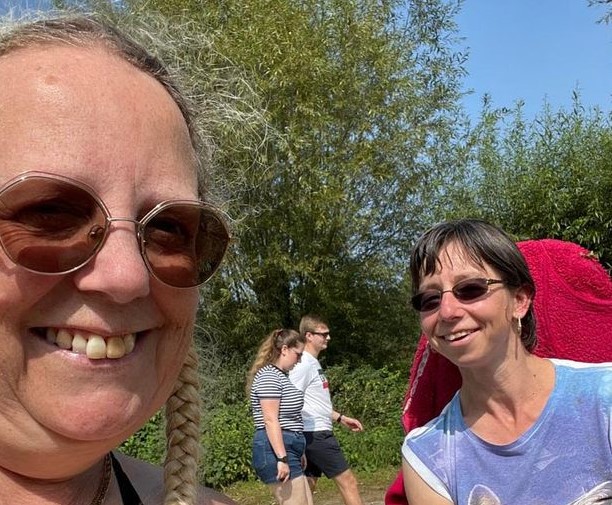Jacky Woods, 56, from Kent, has called for more “absolutely vital” accessible sports as there is “nothing” for her locally – it comes as one-third of disabled people feel excluded from sport, new research found

A disabled woman forced to go down steps on her backside to swim in a lake and relieve her pain feels she’s having to climb Everest each time. Jacky Woods, from Kent, said she is in pain “24/7” because of Ehlers-Danlos syndrome, a rare condition affecting connective tissue.
On top of that, she suffered different mental health breakdowns over the past few years which at one point left her feeling “suicidal”.
But the 56-year-old has found relief in wild swimming at Leybourne Lakes Country Park, which she said gives her “total freedom”.
She told the Mirror: “I can’t use my legs but no one actually knows that in the water, and I lose that tag of disabled as I can swim well with the top half of my body, it’s like I just get to be who I am, without my wheelchair.”
Ms. Woods spoke of how swimming helped her recover from suicidal thoughts she had when she was allegedly fired in 2018 after 32 years as a check-in agent at a ferry company.
She claimed she was sacked following a request to have an electric desk installed at her office in Dover to “reduce the trauma my shoulders were under having to work at a desk four inches too tall for me”.
Ms. Woods, whose condition means she only “very rarely moves”, then claimed she went on sick leave for a year and a half waiting for her employer to put the desk in before she was let off.
“It was absolutely awfully done, I broke down. I just thought I’ve given everything I can to a company and they just let me down. But swimming is such a release because you don’t talk in the water, you are alone in your thoughts, you can sort them out and there is no one chipping in.”
“I get a slight relief from the pain in the water because I live with pain 24/7. I am on quite a high dose of medication and just being without gravity for that little time just relieves the pain for that little bit.”

Ms. Woods said if it weren’t for the lake she would be “sitting indoors watching TV”, feeling even “more isolated”, as “the more I sit indoors the less I want to go out”.
While praising staff at the site for being incredibly supportive, she admitted she felt “embarrassed” to dip in at first because there is no ramp to reach the lake, meaning she has to drag herself up and down 10 stairs each time.
“I remember seeing a poster with stairs on it and a picture of Everest imposed over them,” she said, “because to us a set of stairs poses the same trials as climbing Everest.” She fears other disabled people may be deterred from swimming in the lake because of the trouble accessing it.
Ms. Woods plays competitively in boccia (a wheelchair-related sport to bowls), and hopes Tonbridge and Malling Borough Councils will soon make the park accessible.
“Treat us on an equal basis. Put a ramp in, everyone can use a ramp, but not everyone can use stairs.”
Her comments come as a new 1,000-strong survey by disability rights charity Scope found the number of disabled people taking part in sports since Covid has dropped at an “alarming” rate, with 48 percent becoming less active during the lockdown.
“As we move out of lockdown, we must not waste this opportunity to improve attitudes, improve our gyms and sports centers and get more disabled people involved in sport.”
Tonbridge and Malling Borough Council said in a statement that neither the council nor Leybourne Lakes Watersports Centre, which runs water activities at the site, had been contacted by any member of the public regarding access issues.



























